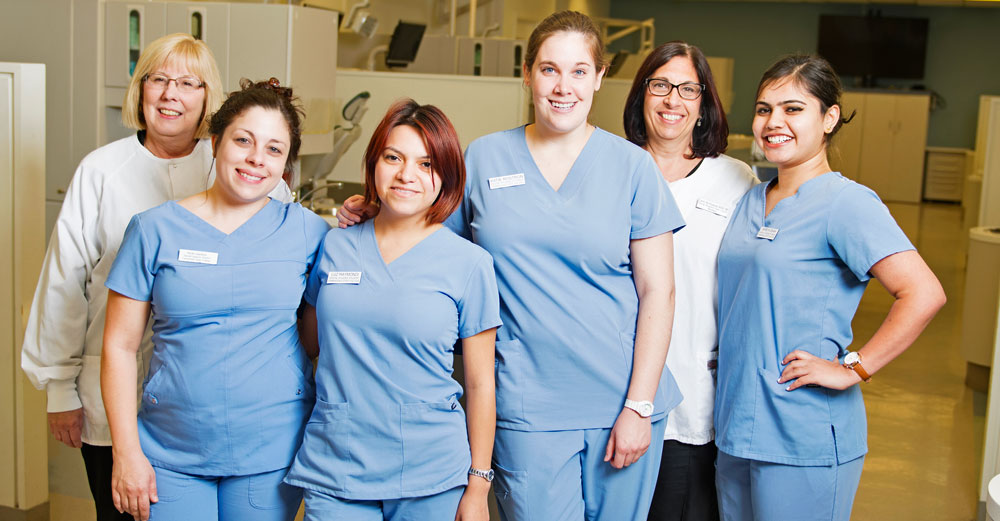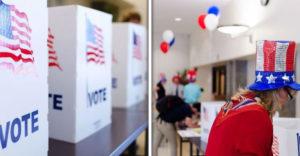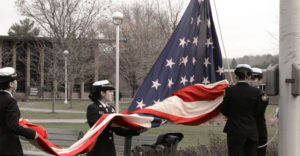
Back in 2013 Dr. Maureen Tsorkris, chair of the dental hygiene department at Farmingdale State College, participated in a dental care event sponsored by Remote Area Medical (RAM)– a Tennessee-based non-profit that provides free dental, vision and medical care in impoverished areas in southern states.
Tsokris brought four dental hygiene students with her, to provide cleanings, fluoride treatments and oral health education to residents of Wise, Virginia, a rural town with a population of barely 3,000. Nearly half of them received treatment at the event, and Tsokris left Wise with a strong desire to do it again – sometime, somewhere – with other dental hygiene students.
“It was such a rewarding experience for the students,” Tsokris says. “I’d been hoping for the opportunity to do it again with more students.”
This year she got her wish.
In September, Tsokris, colleague Carol McNamara, and students Kaitlyn Rostron, Ricki Gardner, Luz Raymondi, and Shreya Shah volunteered at another RAM event, this time in Jonesville, Virginia – a dirt-poor town on the Tennessee-Kentucky border. The event was part of RAM’s two-year-old “Stop the Suffering in Appalachia Initiative,” which has a goal of providing free care to thousands of men, women, and children living in Appalachia’s “Distressed Corridor.” Mobile clinics are strategically located so that 90% of Corridor residents are within driving distance of an event.
“There is a tremendous need for medical care in that area,” says McNamara. “It is very remote and most people lack the ability to better themselves health-wise, due to financial situations or level of education.”
That was a shocker for Rostron, a sophomore in the dental hygiene program and president of the Farmingdale chapter of the Student American Dental Hygienists’ Association.
“While it was wonderful to help this community for the weekend, the trip opened my eyes to the health disparities in our country and the greater issue of access to care.”
Shah, who says dental hygiene is her passion, had the same reaction

“It makes you see what people are going through even in developed countries like the U.S.A. It is really surprising that so many people in the U.S.A. lack access to dental care.”
Planning for the trip began last spring, when a member of the Stony Brook School of Dental Medicine asked Tsokris if Farmingdale would like to join a Stony Brook contingent to Jonesville. Funding was an initial obstacle, but Rostron, Gardner, Raymondi and Shah – who were chosen to go after winning an essay contest – agreed to pay their own way (they were later reimbursed).
When the group arrived at the Jonesville site – a local high school turned into a make-shift clinic – they found an event run like a well-oiled machine. On the other hand, the locals, in a sense, had to jump through hoops. RAM patients are accepted on a first-come, first served basis; no appointments. They need a number to enter the clinic – and numbers are distributed at 3:00 a.m. the night before treatment begins. The earlier you arrive, the greater your chance of being treated. Patients are required to line up outside the clinic as early as possible, but they face what for many would be an interminable wait. RAM suggests they check the weather report, and dress accordingly. It is also recommended that they bring food, water, books, games, etc. to help the wait go faster.
Inside, a small army of doctors, hygienists, students, and local volunteers had assembled to provide care. Joining Farmingdale’s contingent of six were 10 dental professionals from Stony Brook; faculty and students from East Tennessee State University; a half dozen dentists from the surrounding community and a slew of volunteers. By the time the event was over 646 patients had been treated and 464 medical services dispensed, all at a street value of nearly $300,000.
Tsokris and McNamara were as hands-on as their students, providing cleanings and assisting dentists and dental residents. Tsokris remembers one patient she worked on, who entertained her amidst the school-full of people in desperate need of dental care.
“One of the patients I treated was a very funny man. He entertained me with a variety of impersonations – everything from Donald Duck to former President Clinton. He was quite good and made me laugh.”
Rostron recalled an experience not quite so lighthearted.
“One patient made her own veneers out of those fake nails you can buy at the supermarket, and they actually looked good! Her ingenuity impressed me. Sadly, her real teeth were decaying underneath so the dentist had to break apart her homemade restorations and perform extractions.”
Gardner treated a woman who was afraid of the suction device hygienists use in cleanings.
“I worked on a lady who said she hadn’t been to the dentist in 15 years because she was afraid of the ‘Mr. Thirsty Straw.’ She was a grown woman, about 35. I had a lot of work to do since it had been so long since her last visit, but I let her hold the straw and she said she wasn’t afraid anymore. We laughed and talked the whole time, so that was pretty cool.”
Shah had a heartwarming experience too.
“A lady I worked on was amazed to know that we came all the way from New York to provide them care, and she blessed me and thanked everyone involved in the event with all her heart.”
All the while the students were working on patients, they did so under the scrutiny of Tsokris and McNamara. They were more than proud of what they witnessed.
“Our students were excellent,” Tsokris emphasized. “They jumped in and did whatever was asked of them – dental cleanings, assisting dentists and residents with fillings and extractions, taking radiographs and even assisting in the sterilization area. We were so proud of the level of professionalism they displayed and the fact that they were willing to help out in whichever area was needed.”
McNamara added that her students’ clinical placement experience – part of Farmingdale’s Applied Learning program – will be invaluable to both their academic and professional careers.
“Academically, this is something you can’t learn from a book or lecture, and professionally they may never experience this in any office they practice in. It made them realize the importance of educating patients about oral health.”
For Rostron, Gardner, Raymondi and Shah, the experience was not only an academic game changer, but one that deeply affected them personally.
Rostron: “It was absolutely a dream come true. The RAM trip was an amazing experience and I gained so much from stepping out of my comfort zone and helping others.”
Gardner: “When I graduate I’d like to see what other missions are out there.”
Raymondi: “It feels great to make a life-lasting difference, especially for those who desperately need it.”
Shah: “I would absolutely love to do it again.”




Very inspiring. What a wonderful program and awesome volunteers. Great job!!